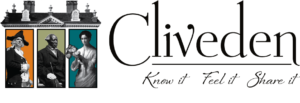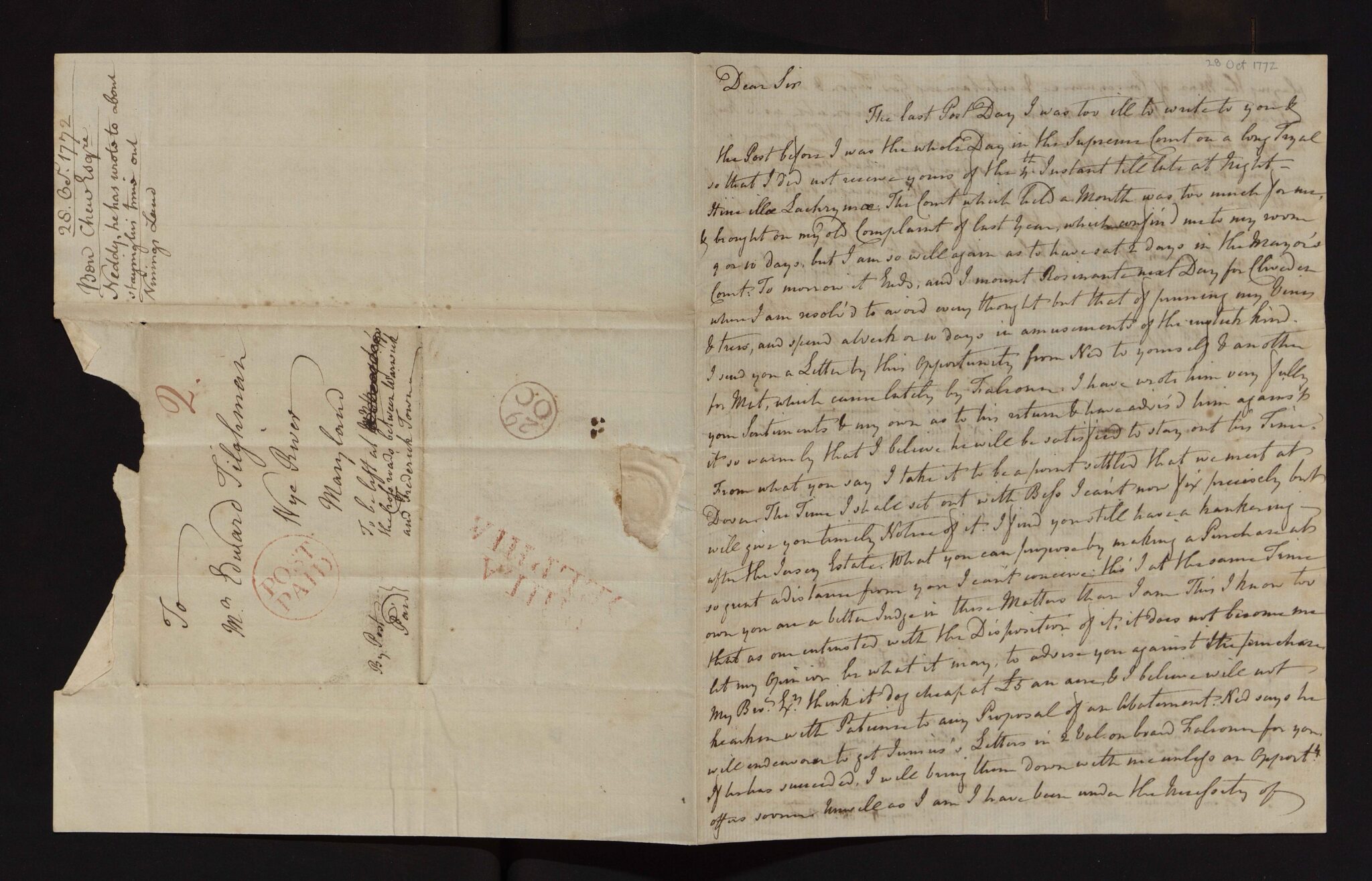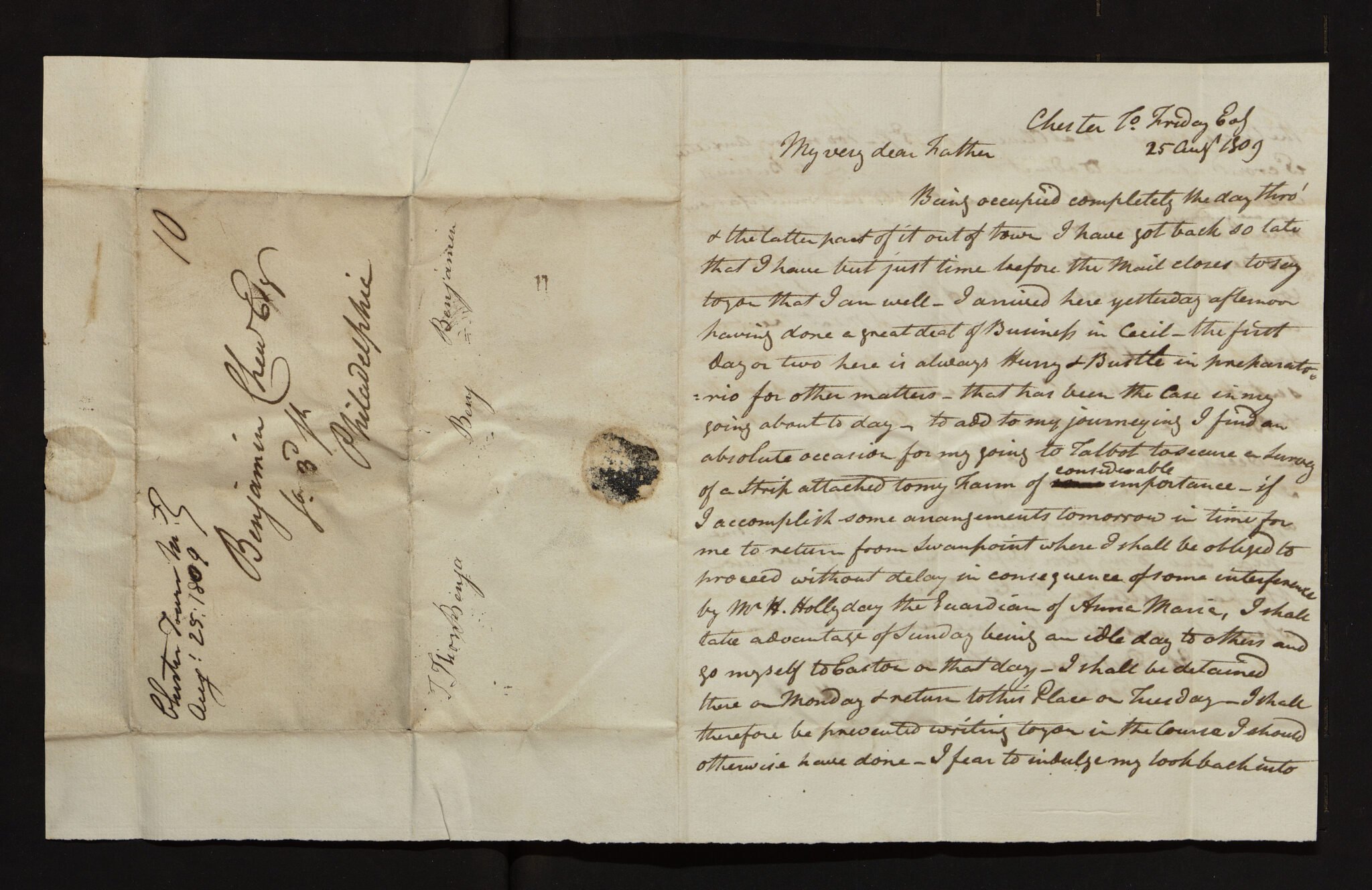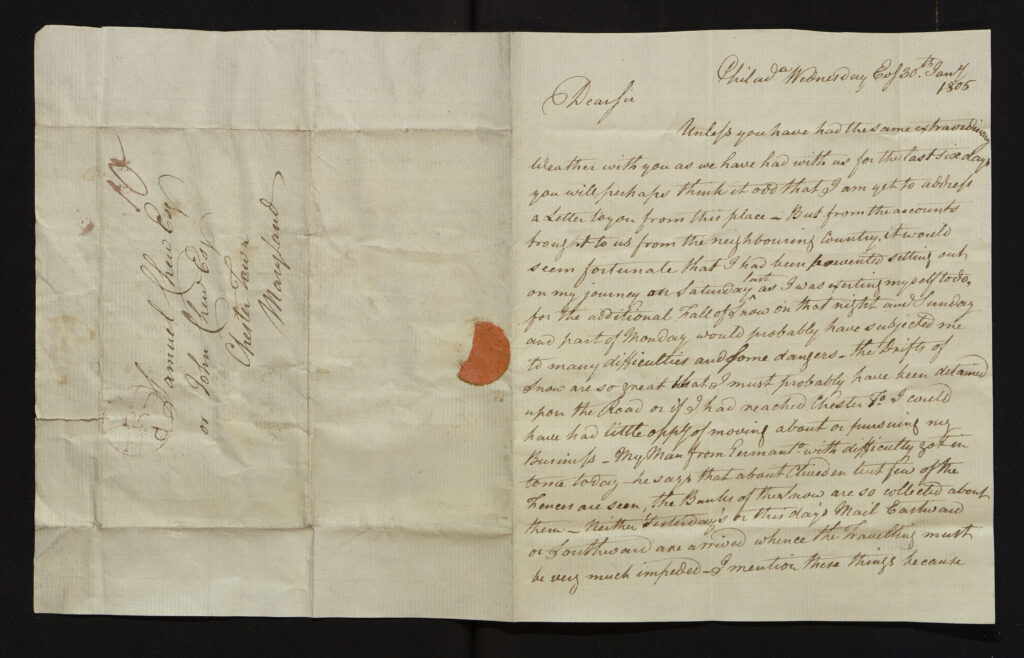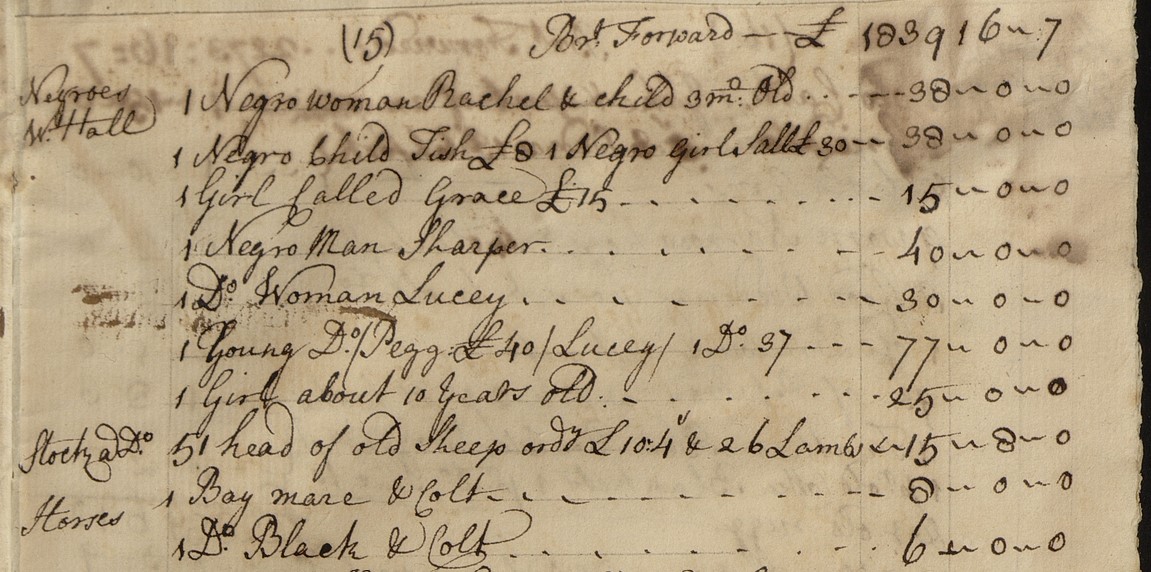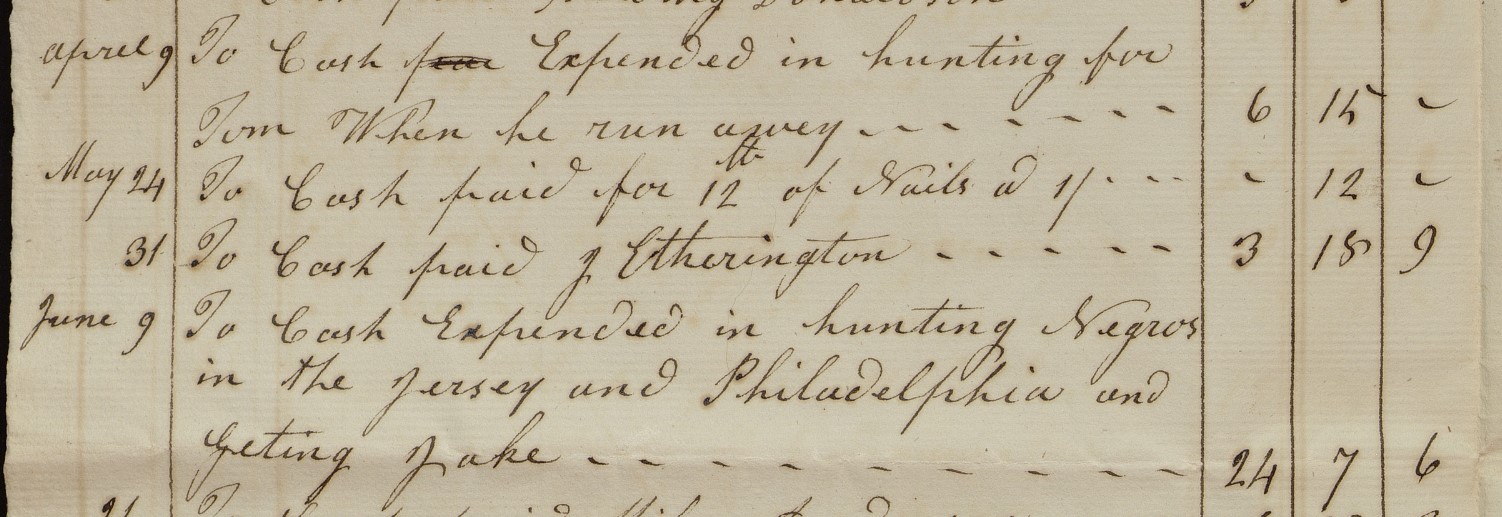Illuminating Hidden Lives
Black Stories of the Mid-Atlantic Region
This project is a collaboration between Cliveden of the National Trust, the African American Geneaology Group, and the Historical Society of Pennsylvania, and seeks to make accessible documents relating to the enslaved and free African American people represented in the Chew Family Papers.
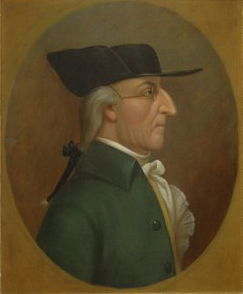
The Chew Family Papers comprises one of the largest collections housed at the Historical Society of Pennsylvania. With more than 288 linear feet of material, the collection centers on Benjamin Chew, Sr. (1722-1810) and his family, and includes numerous documents relating to servants and enslaved people.
Illuminating Hidden Lives: Black Stories of the Mid-Atlantic Region's scope covered the period of Benjamin Chew Sr.'s life with a focus on documents by him and others who overlap within this time frame and may have written about or produced documents regarding enslaved and free African Americans. The project first digitized documents relating to properties in Philadelphia and will extend coverage to properties in Delaware, Maryland, and other states. 116 documents have been digitized and are available to the public. Click the button below to view.
Programs & Publications
Finding Black Families: Stories from The Chew Family Papers
On Tuesday, February 22nd, Cliveden, the African American Genealogy Group, and the Historical Society of Pennsylvania presented Finding Black Families: Stories from The Chew Family Papers via Zoom detailing the research, digitization work, and how to use various kinds of documents to trace their family history. Andrew Williams, Digital Archivist at the Historical Society of Pennsylvania; Adrienne Whaley, Programming Chair and former President of the African American Genealogy Group; and Carolyn Wallace, Education Director at Cliveden, were the program speakers.
Reconstructing Black Families: Stories from the Chew Papers
On Tuesday, April 18th, Cliveden, the African American Genealogy Group, and the Historical Society of Pennsylvania presented a hybrid program, Reconstructing Black Families: Stories from the Chew Papers. Adrienne Whaley, Programming Chair of the African American Genealogy Group, and Carolyn Wallace, Education Director at Cliveden, discussed the recent digitization work, AAGG's work in re-creating family groups, and the impact of how this work affects interpretation of Cliveden.
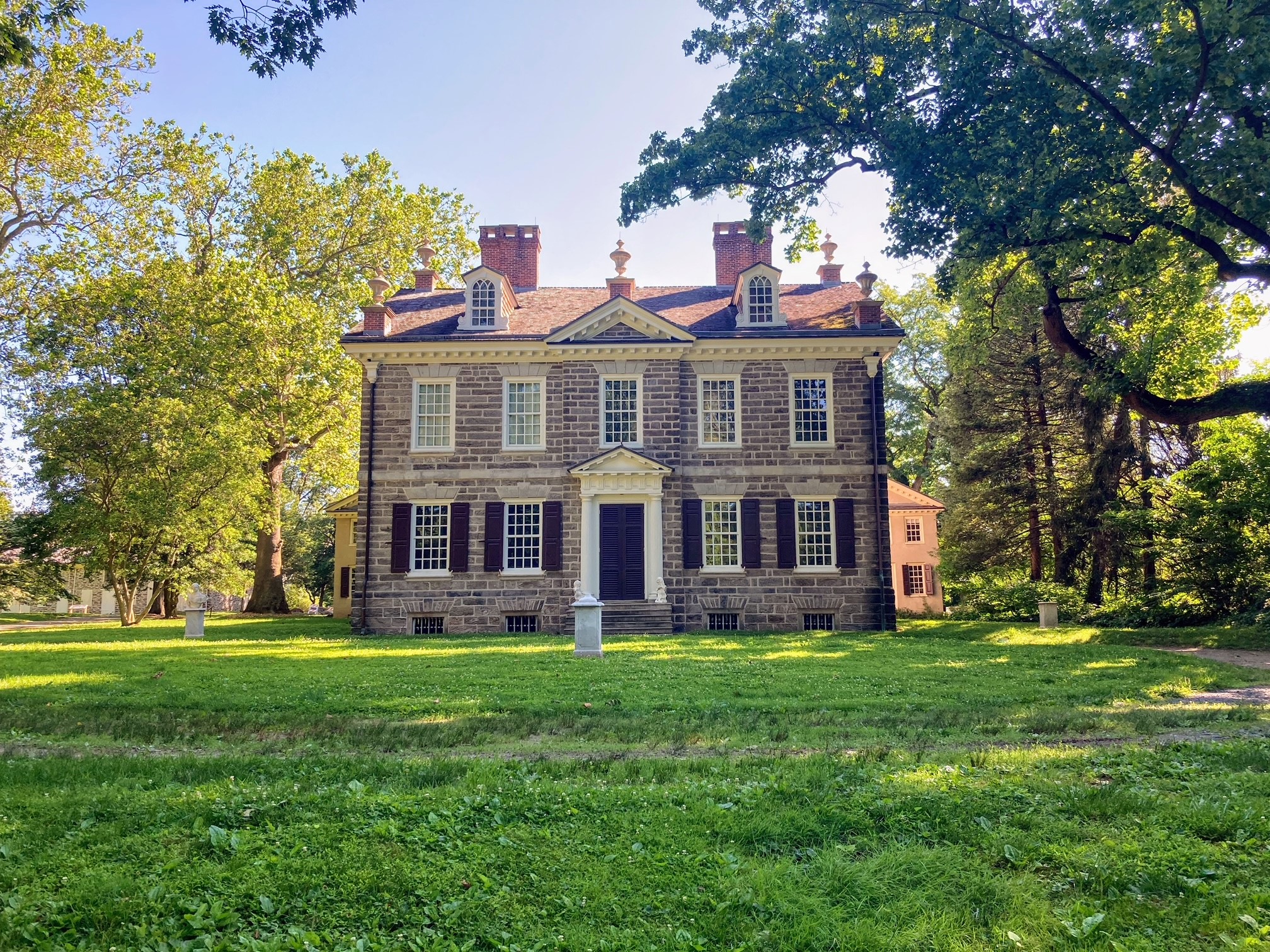
Cliveden's Education Director published an article for the National Trust detailing the research and discoveries made during the project. Click the button below to read the article.
Spotlight: Blog Posts from the African American Genealogy Group
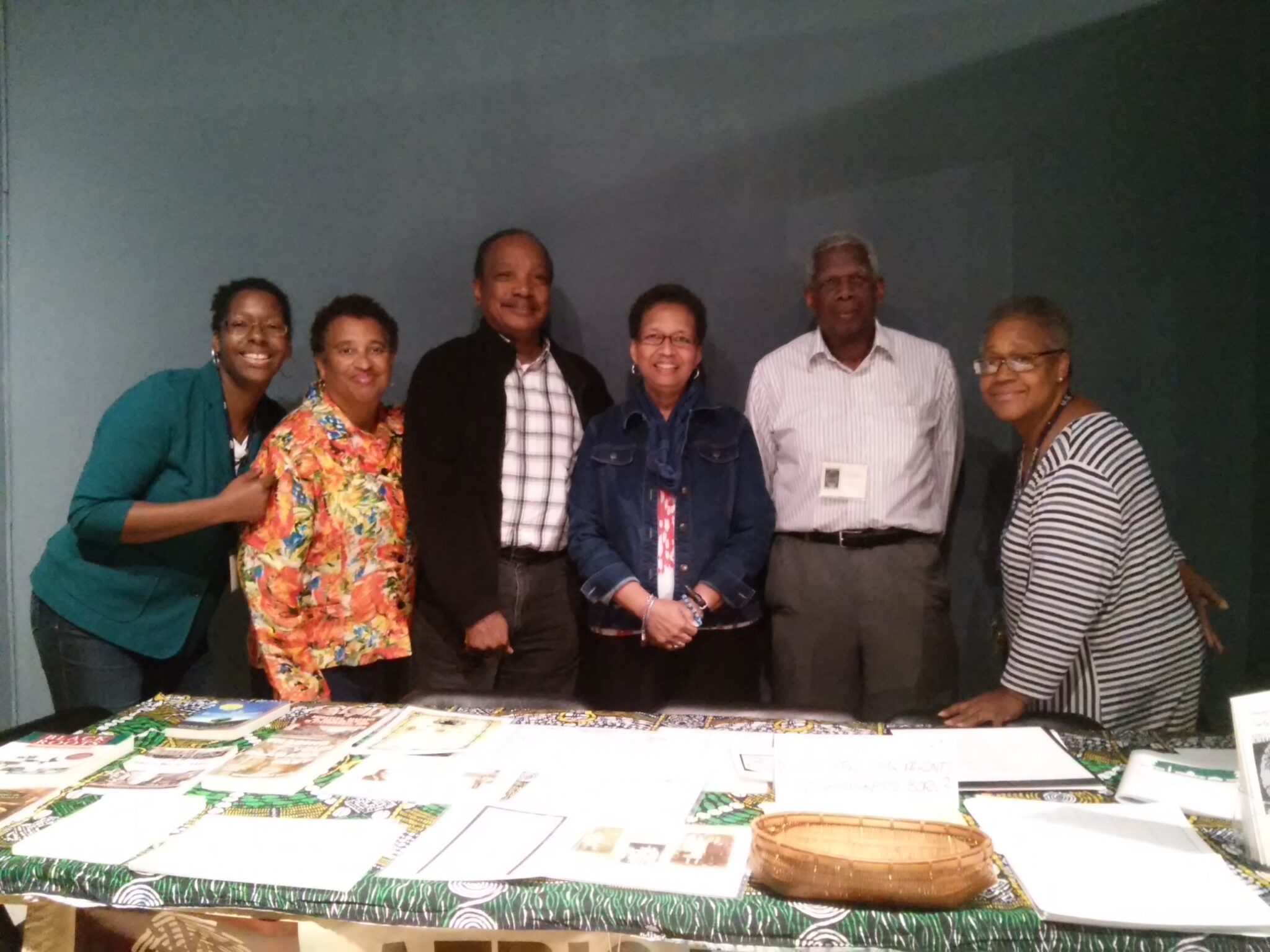
Adrienne Whaley and the members of the African American Genealogy Group of Philadelphia (AAGG) have worked with the Chew Family Papers for the last two years to lift up stories of the enslaved families and communities that appear in the papers of the Chew Family, owners of Cliveden for over 200 years. Adrienne shares their research work and discoveries in three blog posts, putting a spotlight on the following subjects:
- Black families in the Chew Family Papers
- The use of wills and estate records to trace families
- Freedom seeking behaviors from an enslaved man named Jacob
To read each blog post, click on the pictures below!
Project Participants
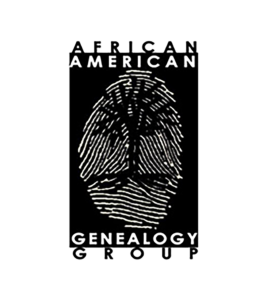
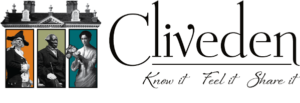
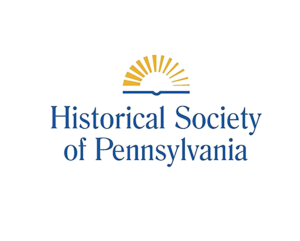
The African American Genealogy Group
The African American Genealogy Group was founded in January 1989 in response to the ever-increasing number of people who expressed a desire to research their family “roots.” Our mission is to educate, provide resources, and create a community for anyone interested in African American family history and genealogical research. Based in Philadelphia, PA and with a membership largely from the Tri-State region, we serve those who are interested in researching their family history locally, regionally, and nationally. https://aagg.org/
Cliveden of the National Trust
Built as a country house for attorney Benjamin Chew, Cliveden was completed in 1767 and was home to seven generations of the Chew family. Cliveden has long been famous as the site of the American Revolutionary War Battle of Germantown in 1777, as well as for its Georgian architecture. New research is unearthing a more complicated history at Cliveden, which involves layers of significance, including the lives of those who were enslaved and in service to the Chew family. This information broadens the meaning of Cliveden as a preserved historic place, exploring themes and stories of American identity and freedom. Traces of the history of the Cliveden property and its occupants can be found throughout the five acre woody landscape.
The Historical Society of Pennsylvania
The Historical Society of Pennsylvania, founded in 1824, is one of the nation’s largest archives of historical documents. We are proud to serve as Philadelphia’s Library of American History, with over 21 million manuscripts, books, and graphic images encompassing centuries of US history. Through educator workshops, research opportunities, public programs, and lectures throughout the year, we strive to make history relevant and exhilarating to all. For more information, visit hsp.org.
